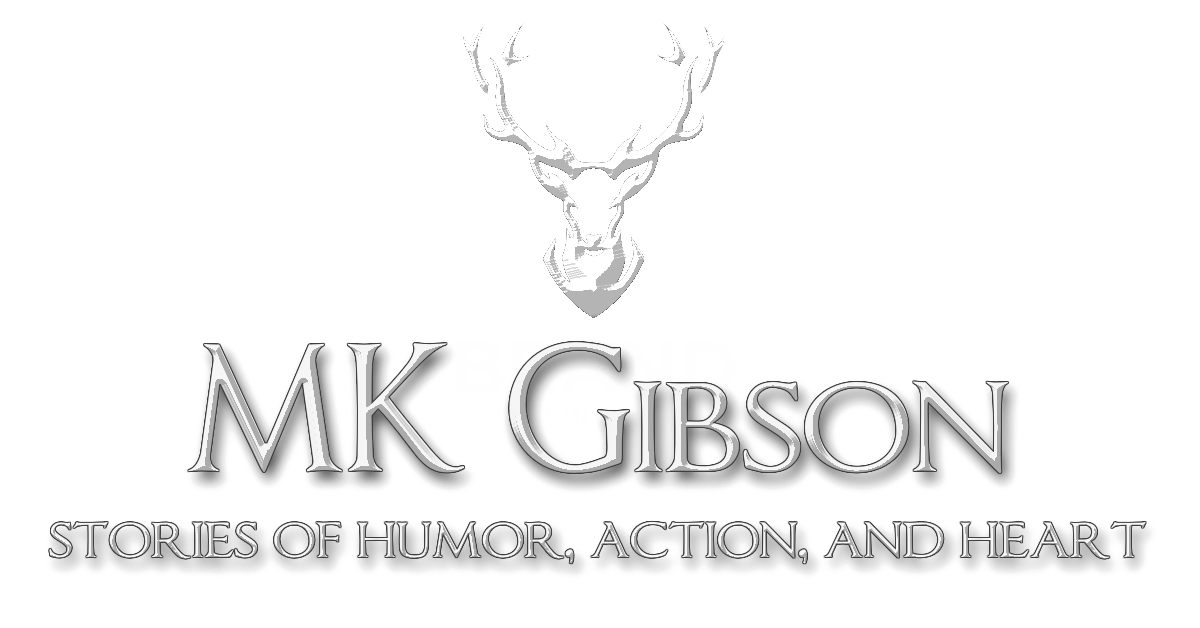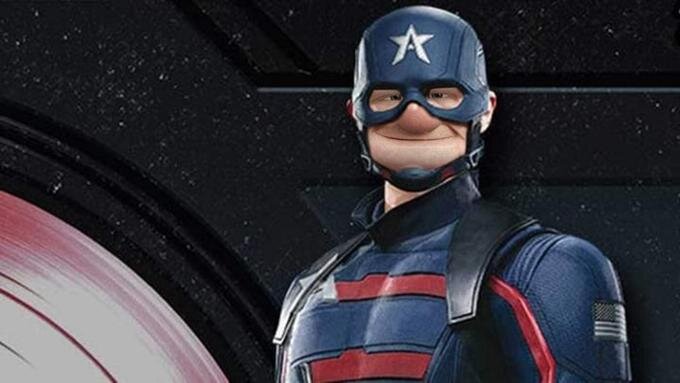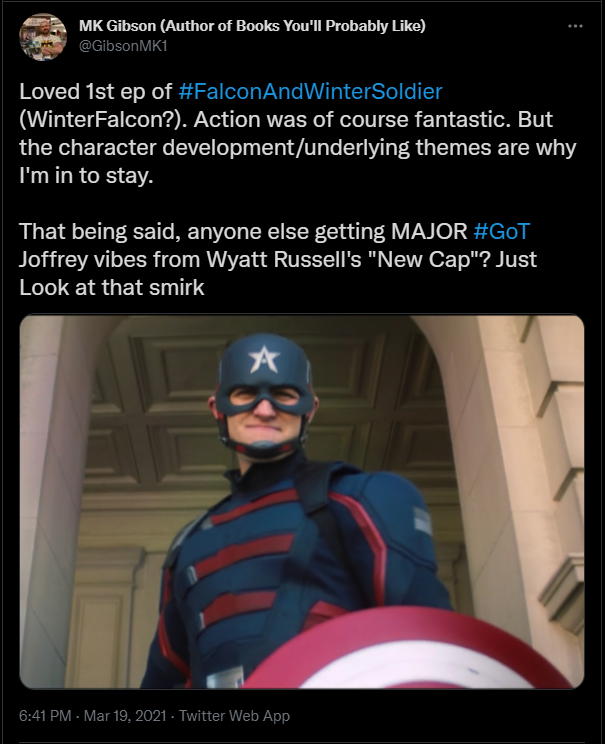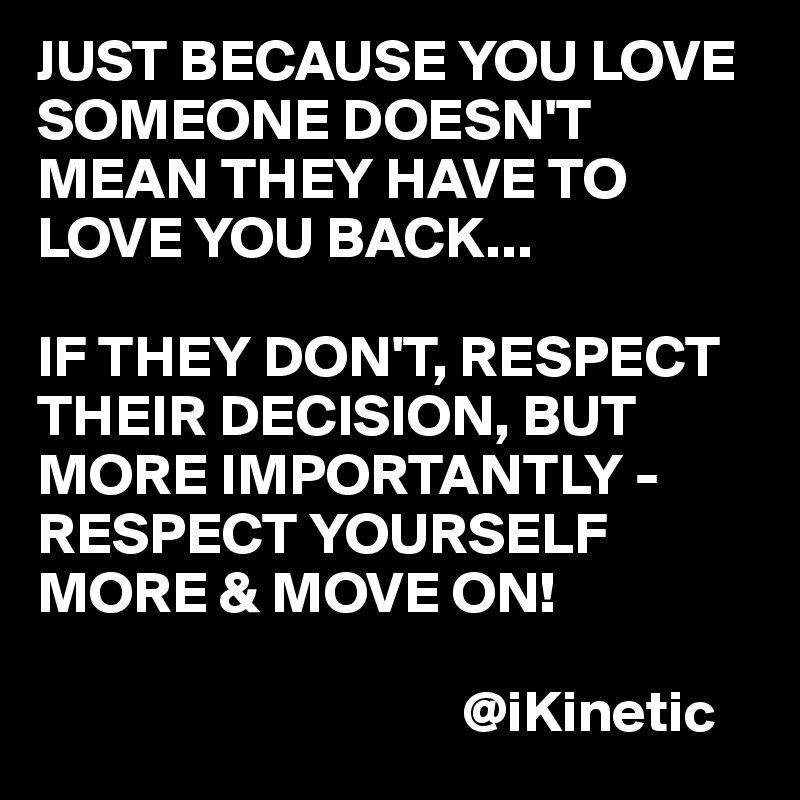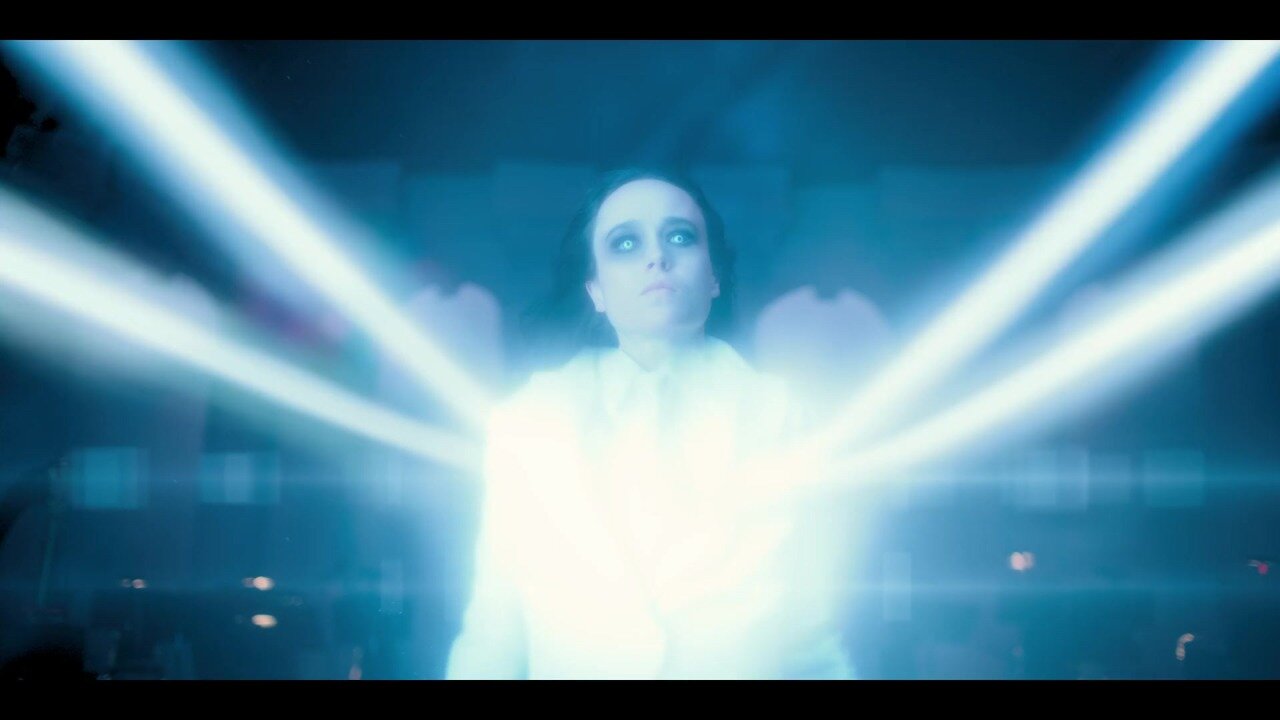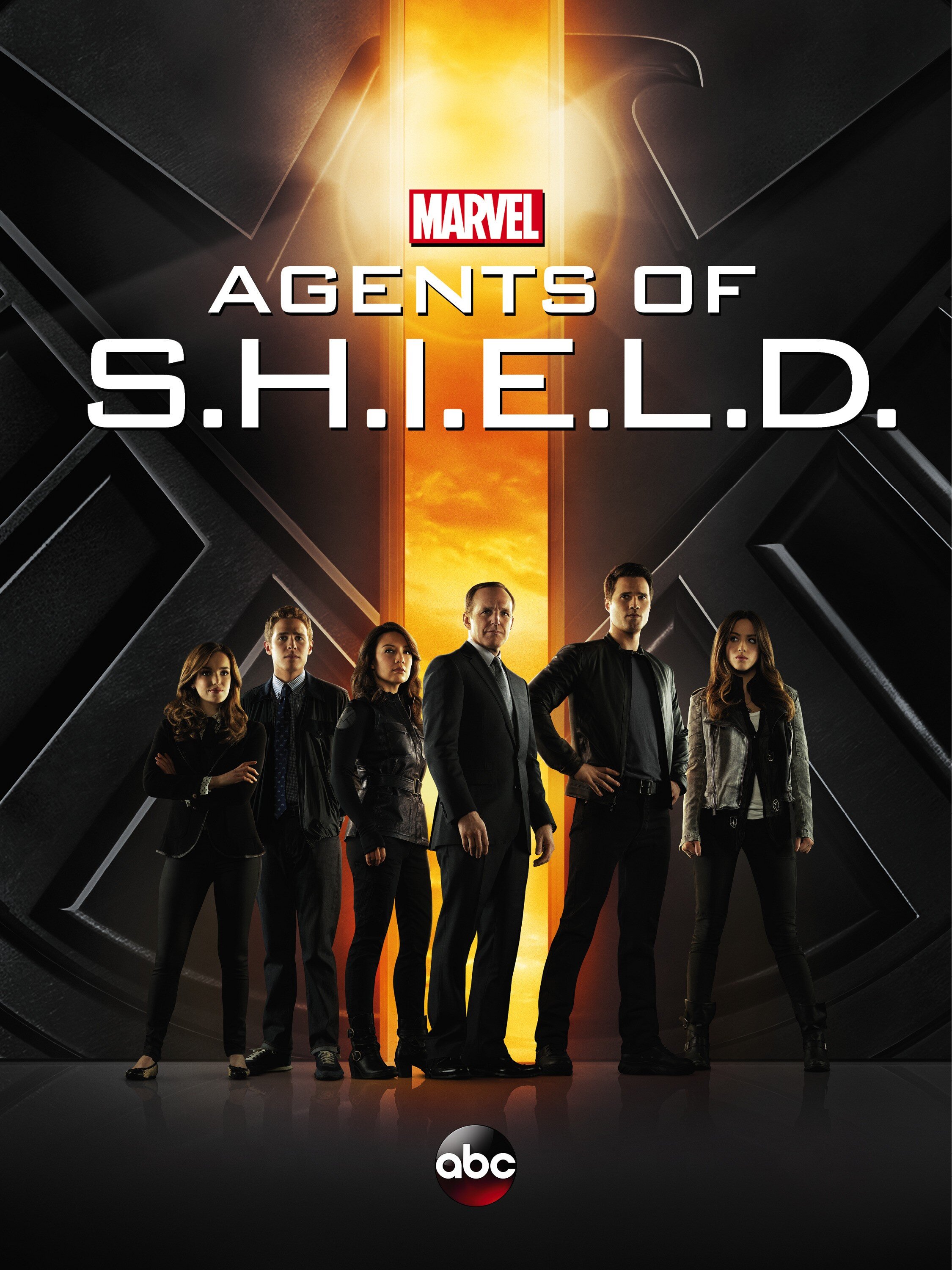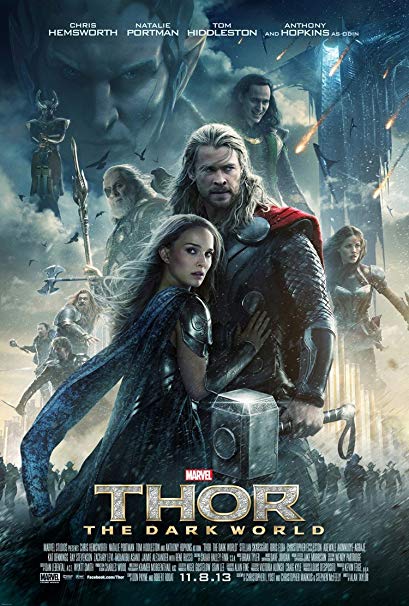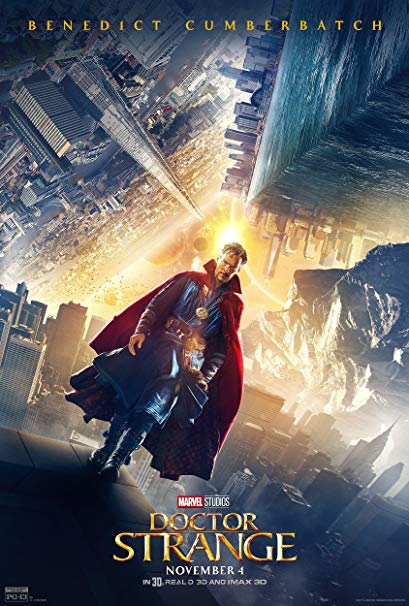Defending Characters We’re Told to Hate -Or- Were Gaston and John Walker Really That Bad?
Anyone who knows me and/or my books knows that I do love me some villains and antagonists. They are, after all, the most important part of traditional storytelling. Sure, heroes are who people cheer for. But for the bulk of storytelling, it’s the villains who set the stage, move the plot, and create the tension. The right villain makes the heroic victory, or heroic sacrifice, all the sweeter. And without the villains, all those purported “heroes” would just be standing around the farm, living in the Shire, swimming under the sea, or looking for power converters at Tosche Station with metaphorical thumbs in their butts.
Trust me, all the destiny in the universe can’t cure thumb-butt.
However, I will not stand by and allow the good name of villain be besmirched by pretenders to the title. I refuse to blindly boo and gnash my teeth at someone who is presented as “Here’s your villain! Hate them!”
So, with my tongue firmly in my cheek, I will attempt to exonerate two such “bad guys.” John Walker, the New Captain America/US Agent from Falcon and the Winter Soldier, and Gaston from Beauty and the Beast.
First up, John Walker
Image from Disney/MCU
So, remember at the end of Falcon And The Winter Soldier ep 1 when John Walker was introduced? When Sam, and we the viewers, saw that knock-off standing there and smugly smiling at the camera, holding Steve Rodgers’ shield? Remember? Yeah you do. And you know for damn sure the internet remembers.
Even I wasn’t immune to that punchable face, just smirking at me. I couldn’t wait to hate that guy. But then from ep 2 onward, I felt … regret for my initial reaction. Remorse.
The show, and the internet, went to great lengths to paint MCU John Walker as a villainous tool. But was he? The Wrap referred to John Walker as the “Toxic Masculinity Captain America” and an “Incel.” According to Epic Stream, the actor Wyatt Russell purportedly got death threats for his character, and was referred to as “{…} one of the most despised villains in the franchise.”
Despised? Really? Why? What did he do besides having the audacity of NOT being Steve Rodgers? Did he deserve the acrimony? Let’s see. He
Was given the shield that we the audience believed should (and knew eventually would) end up in Sam Wilson’s hands.
He admitted to his wife/best friend that he wasn’t sure he was good enough.
Expressed humility on Good Morning America by flat-out saying that while he was not Steve, he would do his best.
Showed up to help Sam/Bucky on the trucks and then admitted that he wasn’t who Sam thought should have the shield.
Asked for Sam/Bucky’s help multiple times. (FYI: referring to someone in the military as a wingman, especially in Air Force culture, is NOT an insult. It is the person you literally trust to have your 6 when things go Tango Uniform. Something Sam, an Air Force vet and later contractor, should have known. And frankly, the writers should have known that as well.)
Bailed them out of trouble in Baltimore.
Refused to be called a hero for his Medals of Honor because of the cost to human life it took to get them, referring to it as “the worst day of my life.”
Got his ass beat by the Dora Milaje for plot reasons and laughed at by Sam/Bucky.
And frankly, just did his best despite clearly having CTE (note how he was always touching his head as if in pain, or shaking his head to “clear the cobwebs.”) This man’s government trained him and said “Go forth.” He did, and was punished for it. They turned their back on him. Did he go evil? No. When he came for revenge against Karly, he instead dropped his shield and saved the busload of people. The people that Karly, our propped-up-by-plot pandering rebellion leader, was actively trying to kill. You know … like a sociopathic murderer.
Yeah yeah yeah, I know: He *finger quotes* killed a guy by bashing him to death with the shield. C’mon, who hasn’t? We’ve all played some kind of RPG. Besides, Walker was fighting a wanted criminal who was, despite said criminal’s speech in that episode to make him empathetic, part of a group that was trying to kill him in addition to being culpable in the multiple murders committed by Flag Shamshers leader, Karli Morgenthau. And after the shield bash, in the next ep, Walker was emotionally wrecked. Just like sad-sack Bucky had been the entire season. Just like every rational, redeemable person would be.
But ya know who’s never showed an ounce of remorse for the people he’s whacked? MCU’s Sam Wilson. That dude killed several dudes in the first episode alone by kicking them out of helicopters, blowing up the helicopters, or dropping them to their deaths over those canyons. And he did it with quips and without an ounce of remorse. But he’s the “hero,” right? So he gets a pass, I guess.
Sorry internet, you lose. Walker was never a villain. He was just a guy you were told to hate and you did. Because that’s what sheep do. They follow the commands of any barking dog. :)
Image from Disney
Now, onto a tougher challenge--defending good ol’ Gaston from Beauty and the Beast. Woof. Okay, let’s give this a shot. Ahem. *affects a comically bad southern drawl*
Your honor, I’m not a big city lawyer. I’m just a country boy from a small county, which one we might call a province. And our “provincial life” is a little slower, sure. But we have good people, with good hearts, who are full of pride in their community. And you know who hates people like us? Belle. How did she refer to people like us in her famous song? “Little town full of little people?” Well, politely fuck you very much, Ms. Belle.
Now fair being fair, the townsfolk of 1700’s Villeneuve, France did despise Belle so much that they secretly choreographed an entire song and dance number to express how much of a stuck-up b-word they thought Belle to be.
So anyway, your honor, Belle makes it clear she wants more than a provincial life. And like all “Disney Princesses,” she is meant for more than being an object of beauty. She wants, and deserves, agency, adventure, and to be in charge of her own destiny. In fact, she tells the bookseller that her favorite book had far-off places, daring sword fights, magic spells, and … a prince in disguise?
Wait, what? I’m sure that’s nothing. Romance is natural for young folk, after all. But a few lines later she says that her favorite part of the book was when the heroine meets Prince Charming. Oh, no, say it isn’t so! Prince fucking Charming? If we skip to the end, we see Ms. Belle hook up with a guy with money and become a princess in a castle, with all the traditional, anti-feminist feminist trappings that go with it. Seems like Belle didn’t want to leave the provincial life; she wanted to be a white woman of privilege.
Go get her, hard left-leaning Twitter. I’ll wait.
Now now, I’m sure the defense is thinking that I’m just badgering the witness. That I’m spitefully nit-picking, straw manning, gaslighting, and looking for holes to tear Belle down to exonerate my client, Mr. Gaston. And they’d be right.
I’m of course being obtuse and hyperbolic. It’s clear to anyone who’s seen the movie that Belle is more than a few out-of-context lines and a victim of Stockholm Syndrome. We’re meant to look past those things about her and see that there is something deeper to her. That the country life and repetitive nature of that time and place was trapping her.
We’re to understand that the depths of Belle’s being and the quality of her character allows her to see that Beast is more than the self-absorbed douchebag whose actions and vile core cursed not only him, but also the lives of his servants to an existence of cutlery, crockery, furniture, and at least one who had to have been a toilet. Through patience and understanding Beast is capable of learning from his mistakes, seeing his prideful ways, and come out a better person with the help of the right guide. Hell, I’d like to spend time with that shaggy bastard myself.
But what happens when we apply that line of thinking to my defendant, Mr. Gaston? Well, the movie doesn’t want you to do that. Why? Because Disney Writer Linda Woolverton wrote Belle to be liberated and reportedly redesigned the new character of Gaston to resemble her own ex-boyfriends: the epitome of toxic masculinity. An arrogant, brash, self-absorbed braggart who sees others as objects.
You know … just like Beast in first half of the movie. But unlike Beast, the defendant, Mr. Gaston, doesn’t get plot time to step out of the stereotype. He’s saddled with being the hyper-macho prick who selects Belle to woo because she’s the prettiest girl in the village.
But what if he wasn’t? I know, I know, your honor; that’s hogwash. But we do live in an era of revisionist history, where movies like Maleficent and Cruella exist to paint the villain in a new light despite the intent of the original creator (or the desire to skin and wear puppies as a coat.) We already learned that Gaston was not an original character and that Belle’s sisters were the ones who screwed her over in the classic fairy tale. C’mon Disney +, where’s Gaston’s redemption prequel movie?
So let’s examine the clues in the movies and piece together a plausible story. Perhaps Gaston sees something special in Belle that he doesn’t see in others. Not as a hunter’s challenge, but as something more? What if all the bravado is an act? The three blondes in the bar clearly wanna do some nasty, PornHub-premium-level sinning with Gaston. But he rejects them. Why? He’s a caricature, after all. Is there any reason that a walking mountain of Klingon testosterone would reject three thirsty hot blondes?
Image from Disney
Well, that’s easy. My defendant, Mr. Gaston, likes the girl who likes books. But he doesn’t know how to say that.
Gaston reaches out to Belle--blustering, of course. Because all he knows is what that society has taught him. Yet he does it anyway. Bucking tradition of seeing the father first, he proposes and is promptly rejected. Naturally, he is upset. Because perhaps Gaston was seeking to step out of his assigned societal role and was seeking a kindred soul. Someone who will see him not as how the village sees him, but for who he is. That’s almost romantic, isn’t it? Remember the song and dance number? This town hates Belle. Yet Gaston refuses to bend to popular opinion and grows to care for Belle, the misfit of Villeneuve and daughter of crazy old Maurice. If anyone could understand being more than what people see, it would be her. But that’s not in the script for Gaston.
Belle refuses to use that depth of personal character that she uses to see the real Beast in order to see Gaston as more than the stereotypical douche. And that’s fine. That’s the story. Just like in real life, no person is ever obligated to reciprocate the feelings of another.
So yeah, at the end of the day I can’t really defend my client’s actions. Regardless of what could have been, Mr. Gaston chose to be a jealous, scornful asshole who even tried to emotionally blackmail a distraught young woman into marrying him or else send her father to a mental institution. But the question is, would he have been such a prick if someone, anyone, took the time to try and know the person and not the package? If recent shows like 13 Reasons Why have taught us anything, then being cognizant of our actions, or inactions, towards others could save lives.
Alas, Gaston will likely always be seen as a villain. An oddly beloved one at that.
So the defense rests. 1 for 2 in defending a couple of villains. But let me leave the jury with this: when it comes to our media villains, just like people in real life, we need to not simply accept what we’re presented. We need to be better. We need to ask questions. Imagine a world where we give others the same benefit of the doubt that we think we’re owed. Imagine the pain and loss that could be avoided if we take the time to listen to others and understand them as people instead of assuming their nature.
Just a thought at the end of a silly blog that tried to apply humor to a couple of Disney “villains.”
When White Women Explode -Or- Questioning Sci-Fi Fantasy Standards
We marvel at the moments when women in sci-Fi/fantasy explode into incredible power because they’re freaking awesome to behold. Super powerful, super cool, and plain old badass. But, are they inherently sexist, or even a touch racist?
There she is. A heroine of a sci-fi/fantasy show or movie. Beaten. Pushed to the edge. Her enemies bearing down on her. A lifetime of being told that she had to repress her incredible power. To be subservient. To be meek. Weak. In control. No more. Not now. When these forces of Hell come at her, she throws her arms wide, throws back her head, and releases all the cosmic, reality-altering power that they never wanted her to have. Boom.
Pretty cool, right? Or . . . is it sexist? Or even racist?
Lemme preface this with: I have no conclusions, hot takes, or hard-line stances with this mini-essay. Just something I’ve been thinking about and wanted to jot down.
In my latest Hammer of Witches novel, She Wakes in Water, I wrote a scene when my protagonist, Aggy Grae, is pushed to her breaking point. For Aggy, it was a place no person should ever be forced to reach. But that’s what writers do . . . treat their characters like red-headed stepchildren. So anyway, when Aggy reaches this moment in the book, she *spoilers* explodes in a moment of fiery power that I had been building towards. It is an intense, heartbreaking scene. But when I step back and look at what I wrote, and what was subsequently published, I wonder if I did right by the character. But I’ll get back to that in a moment.
Watching a lot of movies/TV, and being a writer (note: I never said a good writer), one can’t help picking apart the plot, acts, characters, motivations, etc. It’s a sickness. Like your one musician friend who tears apart band/artists you like because that’s “not real music.” Aren’t they always kind of a prick? Stop bringing your guitar to parties!
Image from Pinterest/Stringjoy.com
Anyway, in addition to story structure, certain repeating themes and elements become visible when you consume a lot of media. This brings me to the point. After watching WandaVision, I thought, “Wow, Wanda is so damn cool! I love her. But man . . . white women really like to explode with power in sci-fi and fantasy, don’t they?” I then ran down a quick mental checklist.
The Scarlet Witch? Check. Explodes with grief/power in WandaVision and Avengers: Age of Ultron.
Jean Grey? Oh yeah. Whether it’s Famke Janssen or Sophie Turner, the X-verse loves to ape the Dark Phoenix and all the destructive, cataclysmic power that character can unleash.
Captain Marvel? Yup yup. The entire shtick of that flick was about holding her down and repressing her power.
Wonder Woman? Well, kinda. In the first one after Captain America dies in the plane … oops, I mean when Steve Trevor bites it in a totally unique death scene, ol’ Gal G. goes into a blind CGI roid rage, smashing everything around her.
The White Violin? Well, yeah. Vanya in The Umbrella Academy season 1 has that moment when she kinda kills the world with her display of cosmic-like power when she breaks the moon. *Please note that I am fully aware of who Elliot Page is, and refer only to the female character he played at the time.*
Oh, how about Bloom from Fate A Winx Saga? Oh my. She goes so super saiyan that she actually grows fairy fire wings while scorching the baddies with her untapped potential.
Princess Ciri in The Witcher? What? I can’t hear you over that kid’s landscape-leveling murder scream!
Images from Netflix, MCU/Disney, FOX/Disney, WB/DC
We marvel at these moments because, well, they’re freaking awesome to behold. Enough anime and animation have taught us that “going into your final form” is super powerful, super cool, and plain old badass. But these examples of female power displays got me thinking . . . are they inherently sexist? I’m not saying that they are, but follow me on this for a second.
The setup isn’t always the same, but typically, a patriarchal, oppressive authority figure seeks to control these women for the sake of innocents, normally suppressing either power or knowledge. Said authority figure postulates that, under the guise of public safety, the potential power these women hold is too great for their fragile psyches and thus must be controlled, curtailed, and diminished. See the exploits of Professor X (Stewart and McAvoy), Sir Reginald Hargreeves, Tony Stark, or Yon-Rogg for examples.
But as all the stories go, these characters inevitably break free and cut loose, normally because of emotional stress/torture, or simply being sick of putting up with people’s shit. These moments are framed to be a “breaking free of control” moment, and why shouldn’t they be? But do they actually (or accidentally) reinforce the historically negative stereotype of female hysteria/hysterical behavior they are meant to overturn? In some of these instances, people do get hurt, and not just the bad guys. In Wanda’s case, just ask the oppressed and mentally tortured people of Westview, New Jersey. And you don’t think that there were innocents on those ships Captain Marvel destroyed? #JusticeforKreeCafeteriaWorkers
Or, is this a chicken-egg scenario, where said females cut loose only because people sought to repress or control them? But said people also saw what they were capable of and repressed them in order to prevent collateral damage. But, then--oh fuck it, my head hurts now.
Setting that debate aside for the moment, I next wondered: why are only the white women exploding? Are female superheroes/powerful protagonists of color not allowed to go big badda-boom? Maybe there are and I’m forgetting, but I honestly don’t recall women of color going nuclear in the triple-A movies/shows.
Will Monica Rambeau release a wave of power as Spectrum/Photon that flattens friend and foe alike? Is Valkyrie authorized to let loose a 30-megaton blast of Asgardian whoop-ass? Will Allison “Rumor” Hargreeves yell so loud that her power dominates a state? Or maybe we’ll see Aisha cast her fairy water magic at tsunami-like levels. Hell, even Storm in the X-Men flicks, who is basically a walking goddess, only unleashes her fury in controlled, measured bursts. Speaking of X-Men, when Disney MCU finally gives us mutants, will we see beloved mallrat and Asian sensation Jubilee go thermonuclear when her back’s up against the wall? I mean, the closest I can think of is when The Witcher’s Yennefer of Vengerberg, played by Indian actress Anya Chalotra, unleashed an inferno on those ugly-armored Nilfgaardian troops. But then again, even she only did so because she was prompted by her mentor Tissaia. Meanwhile, pale-as-powdered milk Ciri gets to scream whenever she wants to and unleash devastation.
Images from Netflix, MCU/Disney, Fox/Disney
Why? Why can’t these women “explode”? Is it racist that they don’t get to do it as often as their white counterparts? Is it because creative minds fear painting the already marginalized minorities as erratic and potentially dangerous? And if that’s the case, then why do it for white women? Because like I’ve pointed out, not every phoenix moment is a good one. Sometimes innocents get hurt.
Outside of Thor in Thor: Ragnarok, I couldn’t really think of a male hero in recent memory that exploded like that. And even when Thor did, he didn’t beat Hela. He barely scratched her. His explosion of electrical was backed up by Led Zepplin’s Immigrant’s Song, and we gave it thunderous applause. Superman and Hulk do a lot of collateral damage, but no one really questions them the same way, do they?
Image from MCU/Disney
When I wrote my female-led, urban fantasy/paranormal Hammer of Witches novels, I did it because I liked a tertiary character from my Technomancer books so much, I wanted to tell her backstory. Aside from the magic and monsters, I wanted to tell a story about a woman who, due to her height, build, and mixed ethnicity, never felt like she fit in. I based Aggy Grae, physically, on several women I served with while in the Air Force who, despite feeling like pariahs, persisted, persevered, and excelled. They had great strength, and I wanted to shine a spotlight on that strength while peppering in human issues that transcend gender. And like I said earlier, in the second book, she has an explosion moment, one that I felt that the character, and the story, earned.
And frankly, I like seeing women cut loose as much as any typical male character. For me, if a character, regardless of gender identity, is well-written and propels the drama, and a display of power makes sense for the story, then go for it!
I guess I’ve written all this word-vomit because I question myself. Am I okay with these moments because that’s what I believe, or what I was inadvertently taught? In this modern age, it seems like everything is questioned, and maybe it should be. I’ve always believed in self-reflection in order to reassess core values as well as day-to-day outlooks. So, should a guy like me even touch subjects like these in his works, or should every creator work hard on trying to tell a good story while simply being conscious of the choices?
Image from Meme Maker
Anyway, as I said in the beginning, there is no conclusion to this rambling think-piece. Just something I’ve noticed and spent some time pondering. What are your thoughts?
As always, Live Long and Strong (and explode as necessary!)
~Gibby
Is Loki Responsible for Dwarf Cannibalism? -Or- Poking Fun at MCU Continuity
Did Loki’s negligence force Eitri the Dwarven weapon maker on Nidavellir to resort to cannibalism in order to survive?
Ah, the MCU. The current gold standard for movie & TV HAH-style storytelling (Humor, Action, Heart). Whether you love or hate the MCU, you have to give credit where credit is due. Across twenty-three released movies, a TV show, and with so much more to come, Executive Producer Kevin Feige clearly has a vision. And focusing that vision with sixteen different directors (and even more writers) into a cogent, beloved universe is nothing short of herculean.
Except you Agents of SHIELD. Apparently, you’re the red-headed stepchild no one loves. Trust me . . . I understand.
Images from ABC and UntappedDespite the (likely?) small army of continuity directors the MCU employs, films are slaves to the editing process, and mistakes are made. As such, certain errors pop up, no matter how hard you try. I’m sure you’ve seen website articles exploring these oversights in plot-logic. And it’s one of these “mistakes” that had a buddy and me laughing the more we explored. So I give you a theory: Did Loki’s negligence force Eitri the Dwarven weapon maker on Nidavellir to resort to cannibalism in order to survive? Here’s the evidence:
We meet Eitri on Nidavellir in 2018’s Avengers Infinity War. He claimed 300 Dwarves lived on that space station, that Thanos forced him to make a gauntlet for the Infinity Stones, and that Asgard had abandoned them (the Dwarves.)
Image from Marvel
Ahh, but what else do we know?
Odin had, what we thought, was the Infinity Gauntlet in 2011’s Thor
Image from Insider.com
But we learned that it was “fake” in 2017’s Thor: Ragnarok.
Image from Marvel
In 2018’s Avengers Infinity War, Thor claimed to be 1500. But he didn’t know about his sister. So, Odin’s desire to wield the Infinity Gauntlet likely led to a prototype created over 1500 years earlier, which is why Hela knew the one in the vault was fake.
Image from Marvel
Wait, so how does this get us to Dwarf eating dwarf? Don’t worry, we’re getting there
At the end of 2013’s Thor The Dark World, Loki has assumed the mantle of Asgard’s king disguised as Odin.
Image from Collider
Thor then runs off and has adventures, including 2015’s Avengers Age of Ultron.
Image from Marvel
In the Age of Ultron post-credits stinger, we see Thanos say “Fine, I’ll do it myself,” and grabs the Infinity Gauntlet. So, by 2015, Thanos has the Infinity Gauntlet.
Image from Marvel
Thor reports Asgard in 2017’s Thor: Ragnarok that the nine realms are in chaos. Since Loki has been pleasuring himself with plays starring Matt Damon and building statues, it’s no wonder why. Shortly thereafter, Asgard is destroyed.
Image from Marvel
So this brings us back to 2018’s Avengers Infinity War where we meet Eitri the Dwarf. And like we said earlier, Thanos had come to Nidavellir and bid Eitri make a gauntlet powerful enough to wield the Infinity Stones.
But Eitri never said when Thanos requested the gauntlet be made?
Image from Marvel
And the answer, based on the MCU presented timeline, is likely Thanos came to Eitri between Loki taking control of Asgard (2013) and Age of Ultron (2015) where we see Thanos with the gauntlet. Eitri likely just used the mold he made for the fake prototype 1500+ earlier. For his efforts, Thanos spared Eitri, but took his hands.
So for anywhere between 2013 (Thor 2) and 2018 (Infinity War) Eitri was alone. I’m sure he rationed the space station’s food for as long as he could. But with no supplies coming in from Asgard, well . . . after a while, hunger takes over. 300 dwarves, but no bodies? Yet, aside from his hands, Eitri seems to be doing … okay? Even … well-fed?
So yes, our beloved God of Mischief piss-poor leadership likely resulted in poor Eitri resorting to eating his dead kin like my redneck family at an all-you-can-eat buffet. No silverware and face first.
Image from Vice
Can’t wait for that to be explored in Loki’s Disney Plus show, or that animated What If? (Maybe a second season bonus?)
Excelsior!
Scorsese Doubts Marvel Movies as Cinema? -or- Hating Popular Things to Sound Cool
An old adage of mine is simple and goes something like this: “Are you being critical, or are you just an asshole?” And I recently added the follow-on caveat of: “And if so, are you one of those assholes who hates things just because they’re popular?”
Image from Know Your Meme
Recently, acclaimed filmmaker Martin Scorsese came out against the wave of comic movies, citing Marvel in particular, as not being “cinema” (HERE). The legendary filmmaker went so far as to refer to the genre as being “theme parks”, as they (Marvel Movies) are not “the cinema of human beings trying to convey emotional, psychological experiences to another human being.”
Wow. Those are some weighted and profound words. And If I were to be a touch catty, I would ask: was it cinema when he directed Jonah Hill to simulate jerking-off a prosthetic penis to (presented as a sex object) Margo Robbie in The Wolf of Wall Street? You know, the same movie that opens with DiCaprio snorting cocaine off a hookers ass, enjoys a nice round “dwarf-bowling”, and flaunts Caligula levels of kinky sex.
And yes . . . I own this movie :)
Image from Imgur.com
Full disclosure, I like the MCU/comic genre of movies and Scorsese’s words rubbed me the wrong way. I don’t like all comic flicks, and I also like/love some of Scorsese’s movies (Gangs of New York being one of my all time favorite movies) . . . but not all of them.
So when (some of) the internet balked at Scorsese’s comments, he doubled down a few days later. (HERE). On the back of that, celebrities like Jennifer Aniston have purportedly claimed that Marvel movies (and I assume the genre) have diminished what is available in terms of acting projects. But hey, that Netflix rom-com murder mystery movie is getting a sequel, so good for her.
But what really struck me as interesting was the wave of vocal supporters for the Goodfellas director. Not because of what he said, the man has a right to his opinion. After all, he’s been been involved with bringing movies to the silver screen since 1959. He’s earned his opinion. (One which is not new) No, what struck me as odd was the vitriol at which some people railed against the Disney-owned Marvel. The venom they spewed was hateful, cruel, and barbaric.
Basically how everyone who is not a New England Patriots fan reacted when The Pat’s won their last Superbowl. … But seriously NE people, y’all are really freaking annoying. You know that right? You are the definition of Sore Winners. There’s a reason people don’t cheer for you.
Image form Golf Digest
As all this went on, pop-culture websites and YouTube channels did as they do, covered the nothing-burger in order to gain clicks and views. Some called the situation a case of old man yelling at clouds. Some said Scorsese was trolling, or that he was jealous of MCU’s success. And as I ingested these comments and views, I started to believe that this wasn’t just an old school movie maker attacking modern trends. I think there are two issues at play.
The first, and actually least important, is: The Natural Reaction to Popular Things.
I’ve always been interested in the phenomena of why people hate on popular things. What is it that makes us, as humans, balk against whatever is popular? I think we’ve all heard, or said, something akin to:
That’s not real music!
You call that art?
You’re so basic!
You eat what? Do you even know what good food is?
That show is so overrated!
The book was better!
Pumpkin spice?!
But why do we do that over something subjective? What is it about things that are beloved by the populace, or at least perceived to be loved, that makes some people so angry? There is a term in psychology called normative social influence (HERE) that basically says that there is an effect due to inherent tribalism that makes people “go with the flow” even if they don’t like something. A communal sense of belonging. In other words, conformity. Another aspect is the mere-exposure effect (or familiarity principle) which as the name suggests, is the more one is exposed to a thing, the more comfortable and accepting they are of it.
Conversely, Rebellion in Group (HERE) is also natural. The thought that rebellion is a strategy of social action to overthrow the group's status quo or to adamantly oppose its revision. Beyond simple rebellion, is the iconoclast. Or, those who feel it is their imperative to tear down idols and to attack cherished beliefs or institutions.
You know . . . like assholes.
Oh, don’t get me wrong. The need to challenge the status quo is a necessity for change, good or bad, to occur. And such actions, leaders, and thinkers are a vital part of society. That being said, lifting something up doesn’t mean you have to push something down.
Another way of thinking about it is: sometimes you have to burn down the old to make way for the new. Conversely, some people just want to see the world burn.
Image from Know Your Meme
When the MCU began with Iron Man, people were skeptical. As the movies grew and became interconnected, people smiled. As they grew further into overlapping properties and team-up movies, they broke bank records and people cheered. But as the juggernaut continued to dominate and grow, that’s when the caution flags started going up. Bitter words were spoken. And then tribalism reared its ugly head.
Looking back on Scorsese’s comments, I honestly don’t think folks are trying to argue that comic movies/MCU are “high art”. I think people were balking at the dismissive, pejorative manner in which Scorsese’s words came across. But, I don’t think his comments fall into the natural rebellion model--while the jabbering squawks of the MCU haters and trolls do. No, I think there is more to it. Something deeper.
This brings me to the second part: Fear of Change.
In 2017, at the MCM London Comic Con, Anthony Mackie, “Falcon” in the MCU, was interviewed on a panel. During the interview (HERE), I think he hit the nail on the head. He said: “People used to go see the Stallone movie. People used to go see the Schwarzenegger the movie. Now they go see “X-Men”. The evolution of the superhero has meant the death of the movie star. And that’s the fear now.” Further in the interview, Mackie admits that the cost of the theater experience has gone up, while home theater technology has gone down. Coupled with other forces, that creates a disinterest to going to the movies. Or, as some think-pieces have said, the death of the cinema. Many of which would like to lay the blame at feet of superhero movies.
Perhaps these factors were what Mr. Scorsese was getting at. The fear of a named franchise destroying the implied artistic standard? A model which has been prevalent since the beginnings of the superstore overtaking “Mom and Pop Shops”. I’ve briefly written about the subject before (HERE). I was warned when I started writing books that stand alone novels were nice, but people came back for the franchises. Recognition and familiarity of characters were what made people come back. And let’s be honest, short of James Bond or Star Wars, no one else has built a franchise in name and scope quite like the MCU.
When it comes to our preferred entertainment, and the perceived value they bring, the result is almost always the same. Some may see the work as less, while others might see it as more. Inspiration comes from many places. Often in the most unique and bizarre ways. Sure, the comic genre might be a CGI nightmare of spandex and punching to some, but others might see the struggle of a hero an be inspired.
So, long story short, are the MCU movies cinema? Well, in the film-studies major, self-professed prestige-piece aficionado, tiny fedora-wearing sense . . . likely not.
Image from MeMe
But, do they “convey emotional, psychological experiences to another human being”? For some, without a doubt. For others, no, they’re just fun. The level of which comes down to human subjectivity vice a standard metric.
So, I end this rambling pseudo-intellectual think piece with this, as I often do: like what you like, love (who) what you love, and don’t let anyone tell you differently. Those who try and shit on what you like, instead of just minding their own business and just liking what they like, are as I said earlier: assholes.
Image from NME.com
My Marvel Movie Rankings . . . Because . . . Why Not?
Yeah, this sure is original. Yup. Because no one else ranks the Marvel movies. (read: sarcasm ;-) ) But, thanks to THIS QUIZ (which I took while bored), it made it fun an easy. So without further ado, here it is, Gib’s Woefully-Behind-The-Times Marvel Movie List.
Note 1 - The app I used asked “Which would you like to watch RIGHT NOW”. So when compiled I agreed that #23 - #16 were tedious to watch. #15 - #11 were “oh, that’s on? I’ll watch it”. And #10 - #1 are the ones I get a excited to watch again.
Note 2 - All my comments are just my opinions. If you take them negatively then . . . they’re a joke? :)
Note 3 - All images from Marvel
